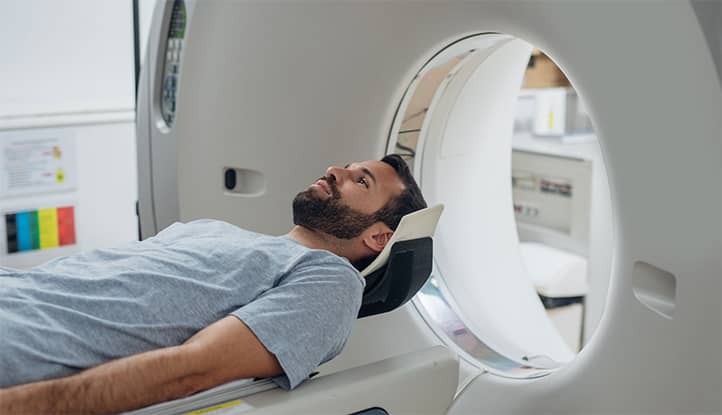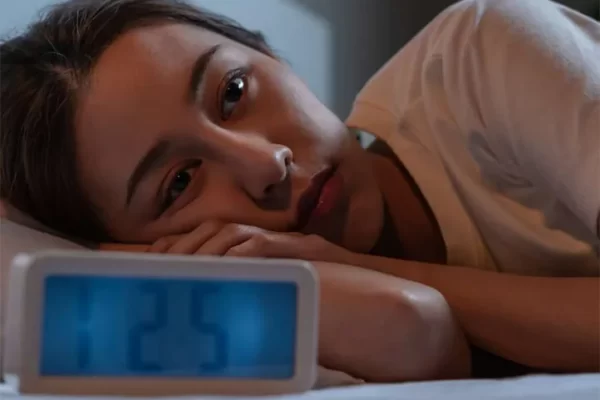Magnetic Resonance Imaging (MRI) is a powerful diagnostic tool that allows doctors to obtain detailed images of internal organs and body structures. This method is widely used to detect various diseases and pathological conditions. However, the decision to conduct an MRI is not always based solely on physical symptoms. Increasingly, medical specialists consider psychological factors that may indicate the need for such an examination.
In this article, we will examine how a person’s psychological state can serve as an indicator for MRI and when it is worth paying attention to one’s emotional state in the context of physical health.
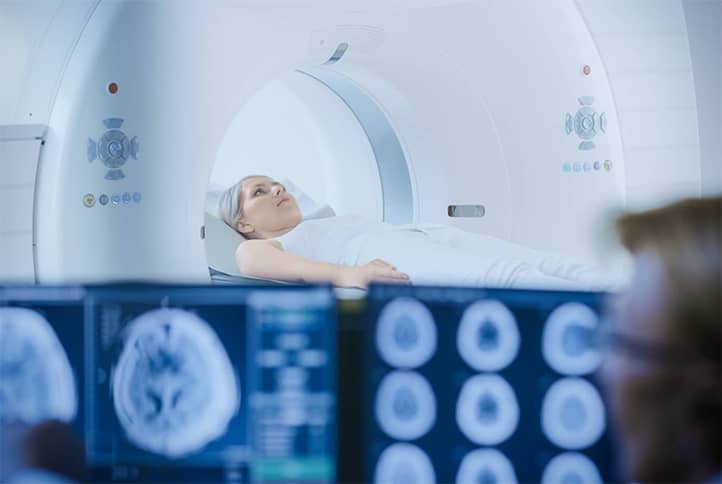
When to Have an MRI: General Indications
Magnetic Resonance Imaging (MRI) has become an essential part of modern medical diagnostics, opening a window for doctors into the inner workings of the human body. This non-invasive technology provides detailed images of organs and tissues using powerful magnetic fields and radio waves.
MRI is particularly valuable in diagnosing diseases of the central nervous system, musculoskeletal system, and soft tissues. It allows for the detection of minute changes in organ structures that may be invisible through other diagnostic methods.
However, despite its effectiveness, MRI is not a routine procedure and is only prescribed when specific medical indications are present. Understanding these indications helps patients and doctors make informed decisions about the necessity of this examination.
Physical Symptoms
MRI is often recommended when the following symptoms are present:
- Persistent headache or migraine.
- Chronic back pain.
- Vision or hearing impairment.
- Neurological symptoms such as numbness or limb weakness.
- Joint pain that does not respond to standard treatment.
Doctor Recommendations
Doctors may recommend MRI for:
- Diagnosing tumors or metastases.
- Assessing the condition after injuries.
- Monitoring the progression of chronic diseases.
- Planning surgical interventions.
However, beyond these obvious physical indications, there are several psychological factors that may also suggest the need for neuroimaging.
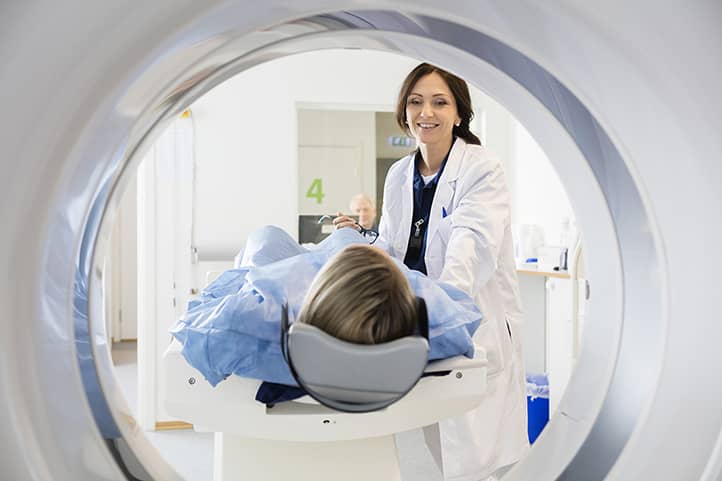
Psychological Indicators for MRI
The human body is a complex system where physical and psychological health are closely intertwined. Recent studies increasingly point to the significant influence of psychological state on physical health and vice versa. This connection opens new possibilities for using MRI not only to diagnose physical diseases but also to understand psychological conditions.
Psychological factors may manifest through physical symptoms, which are often difficult to explain with standard diagnostic methods. In such cases, MRI can be key, helping to identify or rule out organic causes of these symptoms.
Understanding the psychological indicators for MRI requires an interdisciplinary approach, bringing together knowledge from neurology, psychiatry, and radiology. This approach allows for a holistic view of the patient, considering both physical and psychological aspects of their condition.
Chronic Stress and Its Impact on Health
Chronic stress is a state of constant tension that can have serious health consequences. Prolonged stress may lead to:
- Structural changes in the brain that can be detected with MRI.
- Decreased immune function, which can lead to the development of various diseases.
- An increased risk of cardiovascular diseases.
If a person experiences constant stress along with accompanying physical symptoms, MRI can help identify potential physiological changes caused by stress.
Health-Related Anxiety
Increased anxiety about one’s health may not only be a psychological issue but also an indicator of real physical changes in the body. People with high levels of anxiety often:
- Are more sensitive to changes in their bodies.
- May notice early symptoms of diseases that others might ignore.
- Have an increased risk of psychosomatic illnesses.
In such cases, MRI is a useful tool for ruling out or confirming physical causes of anxiety, helping to determine further treatment strategy—whether medical or psychological.
Depression and Its Connection to Physical Health
Depression is not only a psychological condition but also a disorder that can have physical manifestations and consequences. Studies show that depression can be associated with:
- Changes in brain structure and function.
- Increased risk of neurodegenerative diseases.
- Chronic inflammatory processes in the body.
MRI can help detect these physical changes, especially if depression is accompanied by unusual or persistent physical symptoms.
Post-Traumatic Stress Disorder (PTSD)
PTSD is a severe psychological condition that can develop after a traumatic experience. This disorder is often accompanied by physical symptoms such as:
- Headaches
- Sleep problems
- Increased fatigue
- Muscle tension
Additionally, studies show that PTSD may be associated with changes in brain structure, particularly in areas responsible for memory and emotions. MRI can help identify these changes and develop a more effective treatment plan.
Obsessive Thoughts About Illnesses
Hypochondria, or excessive concern about one’s health, may not only be a psychological problem. In some cases, such obsessive thoughts are an early sign of real physical issues. MRI can help:
- Rule out serious illnesses the patient is concerned about.
- Detect minor changes that may be causing discomfort.
- Provide objective information for further treatment—both physical and psychological.
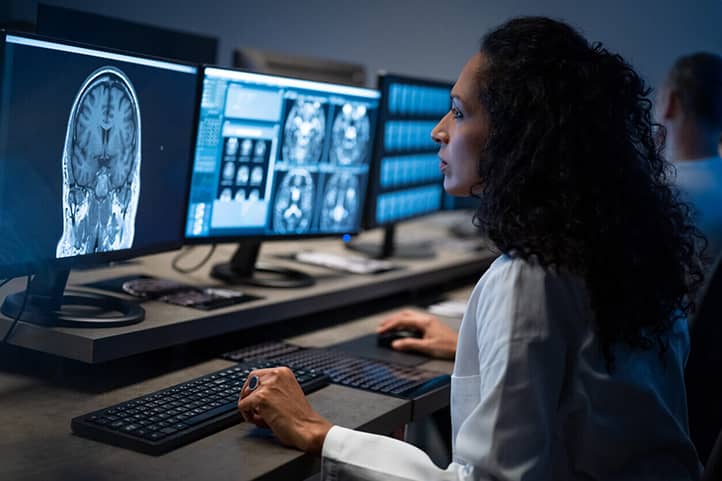
What Psychological Factors May Indicate the Need for MRI?
A person’s psychological state can be a powerful indicator of hidden physiological processes. Often, symptoms that at first seem purely psychological may have an organic basis, which MRI can help identify.
Chronic stress, anxiety disorders, and depression can cause real physical changes in the body, including structural and functional changes in the brain. MRI helps visualize these changes, providing valuable information to develop a comprehensive treatment plan.
It’s essential to understand that psychological factors aren’t always a direct indication for MRI, but they are crucial signals prompting a deeper medical investigation. Attentiveness to a patient’s psychological state allows for timely detection of serious illnesses at early stages.
Recurring Symptoms Without a Clear Physical Cause
If a person reports persistent physical symptoms but standard examination methods don’t reveal a cause, MRI can help:
- Rule out rare or hidden conditions
- Detect subtle structural changes that might be associated with psychosomatic disorders
- Provide the patient and physician with more information to develop a treatment plan
Behavioral or Personality Changes
Sudden or gradual changes in a person’s behavior or personality may signal neurological issues. MRI can help identify:
- Brain tumors
- Early stages of neurodegenerative diseases
- Aftereffects of mini-strokes or other vascular brain issues
Cognitive Impairments
Problems with memory, concentration, or thinking can stem from both psychological and physiological factors. MRI can help:
- Assess the condition of brain structures responsible for cognitive functions
- Detect signs of neurodegenerative diseases
- Identify vascular issues that may affect cognitive functions
In all these cases, it’s important to remember that the decision to conduct an MRI should only be made after consulting a qualified medical professional.
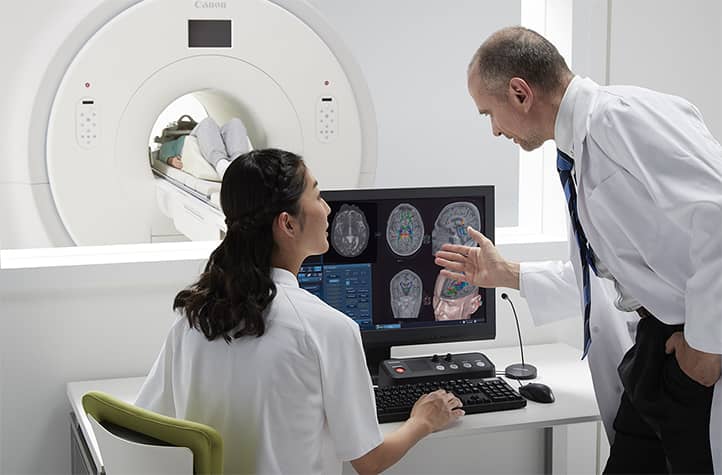
Balancing Necessity and Excessiveness
In modern medicine, where advanced diagnostic technologies are available, there’s a temptation to use them as frequently as possible. However, excessive use of MRI can have negative effects on both individual patients and the healthcare system overall.
Each MRI scan carries certain risks and costs. While the procedure itself is considered safe, frequent MRI scans can increase patient anxiety, especially if results show minor anomalies without clinical significance.
Finding the right balance requires an individualized approach to each patient. Physicians must weigh the potential benefits of MRI against possible risks and costs, considering both the physical and psychological condition of the patient.
Risks of Excessive Medical Testing
Overuse of MRI can have negative consequences:
- Financial burden. MRI is an expensive procedure, which can impose a significant financial strain on both patients and the healthcare system.
- Psychological stress. Frequent medical examinations may increase anxiety and fear of illness.
- Risk of false positives. Sometimes, MRI can reveal minor anomalies with no clinical relevance, leading to unnecessary further testing or interventions.
- Distracting from real issues. Excessive focus on physical examinations can distract from addressing core psychological issues.
The Importance of Consulting a Doctor
Before deciding to have an MRI, it’s important to:
- Discuss all symptoms and concerns with a doctor
- Consider alternative diagnostic methods
- Weigh the potential benefits and risks of the procedure
- Take psychological factors into account that may influence the perception of symptoms
A qualified medical professional can help determine whether an MRI is truly necessary in a specific case or if other diagnostic methods and treatments may be more appropriate.
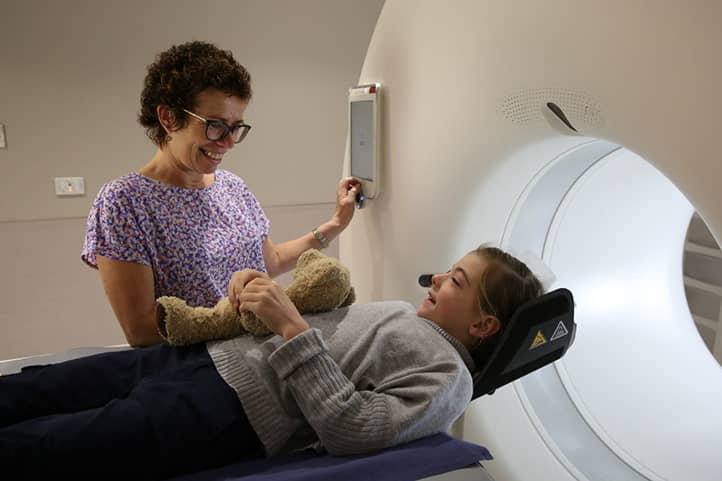
Preparing for MRI with Psychological Factors in Mind
Preparing for MRI is not only a technical process but also an important psychological step. Many patients feel anxious before the procedure, especially if it’s their first time or if they suffer from claustrophobia.
Psychological preparation can greatly enhance the patient’s experience and improve the quality of the images obtained. This involves not only providing information about the procedure but also teaching relaxation and stress-management techniques.
An individualized approach for each patient is key to this process. Some people may be reassured with a brief conversation with the medical staff, while others may need more intensive psychological support.
Overcoming Fear of the Procedure
Many people experience anxiety or fear before MRI, especially due to the enclosed space of the machine. Here are some strategies that may help:
- Detailed information. Patients should be given complete information about the procedure, its duration, and what to expect during the scan.
- Visualization. Patients can imagine pleasant scenes or peaceful places during the procedure.
- Music or audiobooks. Many MRI centers offer the option to listen to music or audiobooks during the scan to distract and calm the patient.
- Presence of a loved one. If possible, allow a loved one to be nearby during the procedure.
- Sedation. In extreme cases, mild sedation may be considered, but this decision should be made by a doctor.
Methods of Relaxation and Anxiety Reduction
Various relaxation techniques can be used before and during MRI:
- Deep breathing. Slow, deep diaphragmatic breathing helps reduce stress and anxiety.
- Progressive muscle relaxation. Tensing and relaxing different muscle groups in sequence promotes a state of overall relaxation.
- Meditation. A short meditation session before the procedure can help calm the mind.
- Positive affirmations. Repeating positive statements can help alleviate negative thoughts and reduce anxiety.
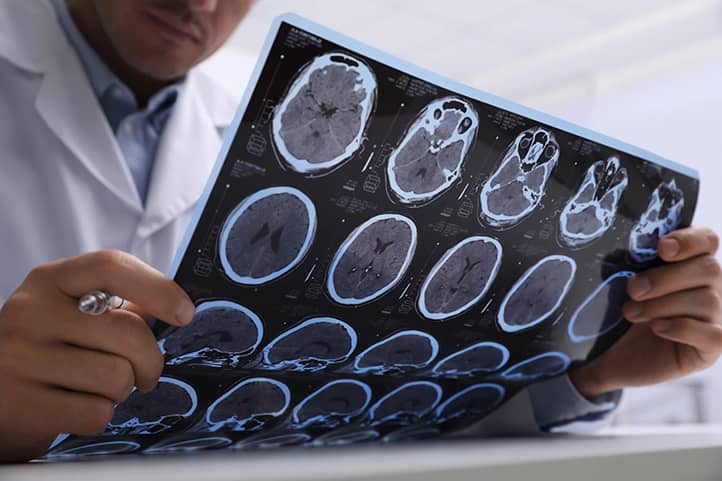
MRI Results Interpretation
Interpreting MRI results is a complex process that requires not only medical knowledge but also an understanding of the patient’s psychological state. The images obtained during an MRI can be extremely detailed, yet their significance is not always clear-cut.
In the context of psychosomatic disorders, interpreting MRI results becomes even more challenging. Changes detected in the images can be both the cause and the result of the patient’s psychological issues.
An interdisciplinary approach, combining the expertise of radiologists, neurologists, and psychiatrists, is often the most effective way to interpret MRI results in complex cases. This approach allows the results to be considered in the context of the patient’s overall health.
The Importance of Professional Medical Consultation
MRI results should always be interpreted by a qualified medical specialist. This is essential for several reasons:
- Diagnostic accuracy: Medical professionals possess the necessary knowledge and experience to accurately interpret images.
- Contextualizing results: The doctor can consider MRI results in the context of the patient’s overall health, symptoms, and medical history.
- Treatment planning: Based on the MRI results and the overall clinical picture, the doctor can develop an optimal treatment plan.
- Emotional support: A professional healthcare provider can offer emotional support and answer the patient’s questions, which is especially important for those with heightened anxiety.
Avoiding Self-Diagnosis
Self-interpreting MRI results can be dangerous for several reasons:
- Lack of specialized knowledge: Without medical education, it’s easy to misinterpret images or overlook important details.
- Risk of excessive worry: Unfamiliar terms or minor anomalies can cause undue anxiety.
- Risk of underestimating the problem: Conversely, serious issues might be missed or underestimated.
- Incorrect treatment: Self-diagnosis can lead to inappropriate self-treatment, which is hazardous to health.

Psychological Aspects After Receiving MRI Results
Receiving MRI results can be an emotionally intense moment for a patient. Whether a pathology is identified or not, this information can have a significant impact on a person’s psychological state.
Positive results confirming the presence of disease can trigger shock, fear, or anxiety. Conversely, negative results showing no pathology may bring relief but also frustration, especially if symptoms persist.
It’s important to understand that a patient’s reaction to MRI results can be complex and ambiguous. Professional psychological support at this stage can help the patient better understand and accept the results and develop a strategy for further action.
Reaction to Negative Results
If no pathology is identified in the MRI, this can lead to various reactions:
- Relief: Many patients feel significant relief knowing that no serious issues have been identified.
- Skepticism: Some patients, particularly those with chronic symptoms, may doubt the accuracy of the results.
- Disappointment: Paradoxically, some patients feel disappointed if no physical cause for their symptoms is found.
- Motivation: Negative results may motivate the patient to pay attention to the psychological aspects of their health.
Reaction to Positive Results
If the MRI reveals pathology, this can also cause a range of psychological reactions:
- Shock and denial: The initial response often includes shock and reluctance to accept the diagnosis.
- Anxiety and fear: Naturally, patients may feel anxious about the upcoming treatment and prognosis.
- Relief: Some patients feel relief that a cause for their symptoms has finally been found.
- Determination: Many patients mobilize their psychological resources to fight the identified problem.

Integrating Psychological Support into the MRI Diagnostic Process
Integrating psychological support into the MRI diagnostic process is a new approach that acknowledges the importance of the patient’s psychological state at all stages of diagnosis. It extends beyond just overcoming the fear of the procedure, encompassing the entire spectrum of psychological aspects related to MRI.
Psychological support can include various methods, from simple relaxation techniques to more complex psychotherapeutic interventions. It is essential that this support is available not only before the procedure but also during and after the results are received.
This comprehensive approach not only improves the patient experience but can also increase the accuracy of the diagnosis. A calm and relaxed patient is more likely to remain still during the scan, which is crucial for obtaining quality images.
Before MRI
- Psychoeducation: Providing patients with information about the connection between psychological and physical health.
- Anxiety screening: Identifying patients with high anxiety levels who may need additional support.
- Training in relaxation techniques: Conducting short sessions to teach stress reduction methods.
During MRI
- Constant communication: Ensuring continuous voice communication between the patient and medical staff.
- Psychological support: When needed, having a psychologist or specially trained healthcare worker present for emotional support.
- Use of distraction techniques: Applying music, audiobooks, or visual effects to reduce anxiety.
After MRI
- Immediate debriefing: A short discussion about the MRI experience to relieve emotional tension.
- Psychological consultation: Offering the opportunity to discuss feelings and fears with a professional psychologist.
- Support during result disclosure: Providing emotional support when MRI results are shared.
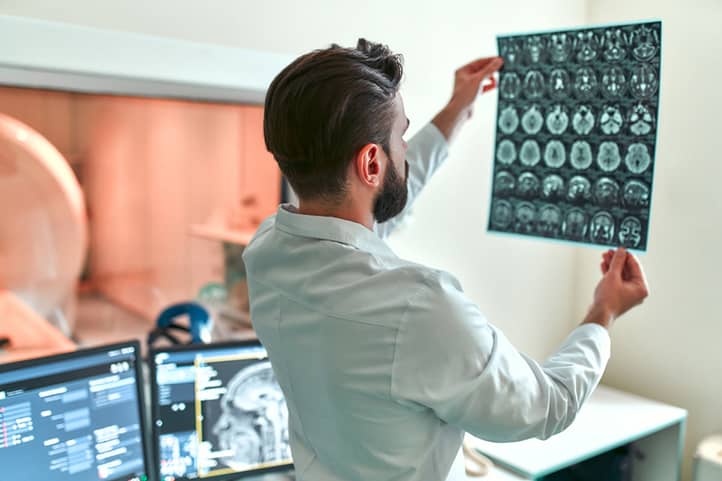
New Research Directions: MRI as a Tool for Studying Psychosomatic Connections
MRI opens new horizons for studying the complex links between the mind and body. This technology allows the visualization of not only anatomical structures but also functional changes in the brain and other organs, which may be related to psychological states.
Studies using functional MRI (fMRI) allow for real-time observation of brain activity, offering new insights into the mechanisms of emotions, cognitive processes, and mental disorders. This knowledge can be used to develop more effective treatments for psychosomatic diseases.
Additionally, MRI can aid in studying the effects of psychotherapy and other psychological interventions on brain physiology. This paves the way for a more objective assessment of the effectiveness of various therapeutic approaches.
Functional MRI (fMRI) in Studying Emotions
Functional MRI allows for real-time observation of brain activity, opening new avenues for studying emotions:
- Visualization of emotional reactions: fMRI shows which brain areas are activated during various emotional states.
- Study of anxiety and depression mechanisms: Research helps to better understand the neurobiological foundations of these disorders.
- Evaluating psychotherapy effectiveness: fMRI can reveal changes in brain activity before and after a course of psychotherapy.
MRI in the Study of Psychosomatic Disorders
MRI is becoming an important tool in studying psychosomatic disorders:
- Detection of physiological changes: MRI can show how chronic stress or anxiety affects the structure and function of various organs.
- Study of pain mechanisms: MRI helps understand how psychological factors influence pain perception.
- Research on meditation and mindfulness effects: MRI is used to study how these practices affect brain structure and function.
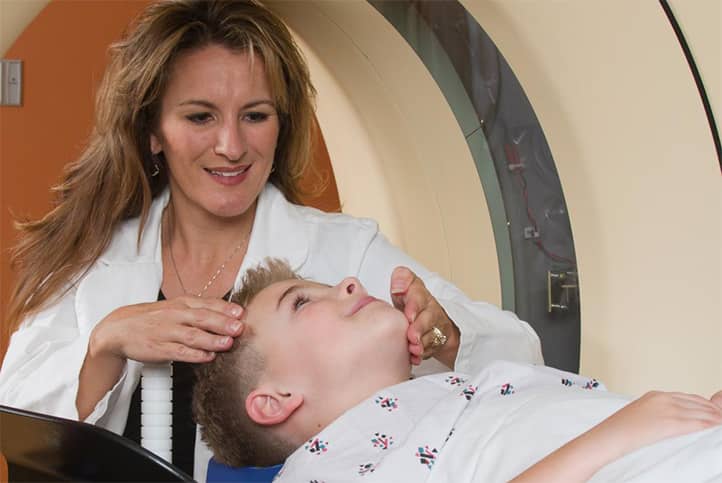
Ethics of Using MRI for Psychological Diagnoses
Using MRI in a psychological context raises a number of important ethical questions. The ability to “look into” a person’s brain and potentially draw conclusions about their psychological state based on physiological data requires special caution and ethical responsibility.
One key issue is confidentiality and the protection of personal data. MRI results may contain highly sensitive information about a person’s psychological state, and ensuring adequate protection of this information is critical.
Moreover, there is a risk of over-medicalizing psychological problems. It is important to maintain a balance between using MRI as a helpful diagnostic tool and recognizing the limitations of this technology in the context of complex psychological processes.
Confidentiality and Data Protection
- Storage of results: Ensuring secure storage and protection of MRI results, especially if they contain sensitive psychological information.
- Data access: Clearly regulating who has access to MRI results and under what conditions.
- Informed consent: Patients must be fully informed about how their data will be used.
Results Interpretation
- Risk of stigmatization: Caution must be exercised to prevent MRI results from leading to stigmatization of patients with psychological issues.
- Interpretation limitations: Understanding MRI’s limitations in diagnosing psychological states and avoiding hasty conclusions.
- Comprehensive approach: MRI results should only be considered as part of a comprehensive patient assessment.
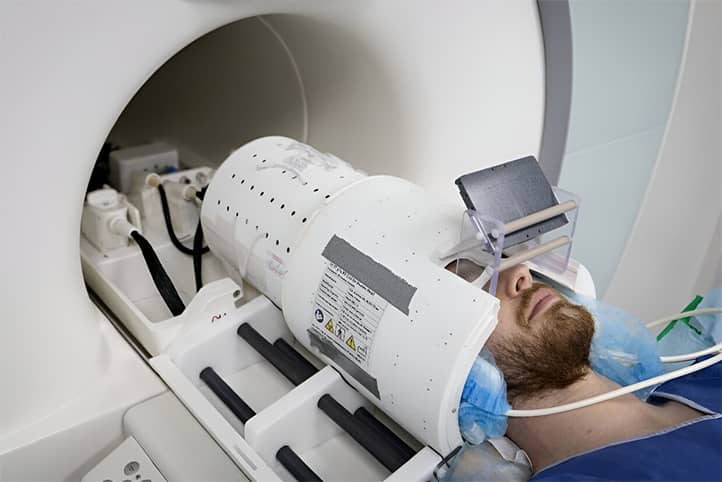
The Future of MRI in the Context of Mental Health
The future of MRI in the context of mental health looks promising and exciting. Advances in technology allow for increasingly detailed and informative brain imaging, opening new possibilities for understanding psychological processes and disorders.
Integrating MRI with other advanced technologies, such as machine learning and artificial intelligence, could revolutionize the diagnosis and treatment of mental disorders. These technologies can help identify subtle changes in brain structure and function that cannot be seen with the naked eye.
Furthermore, the development of portable MRI devices may make this technology more accessible and allow for studies in real-life conditions. This will significantly expand our understanding of how psychological factors affect the brain in everyday life.
Personalized Medicine
- Individual brain profiles: MRI can help create “maps” of individual brain characteristics for more precise diagnosis and treatment.
- Predicting treatment response: MRI may help predict how a patient will respond to specific types of psychotherapy or medication.
- Monitoring progress: Regular MRI studies can help track progress in treating mental disorders.
Integration with Other Technologies
- Artificial intelligence: Using AI to analyze MRI results may increase diagnostic accuracy and early detection of psychological issues.
- Virtual reality: Combining MRI with VR technology could offer new possibilities for treating phobias and anxiety disorders.
- Neurofeedback: Real-time MRI can be used to train patients to control their emotional responses.
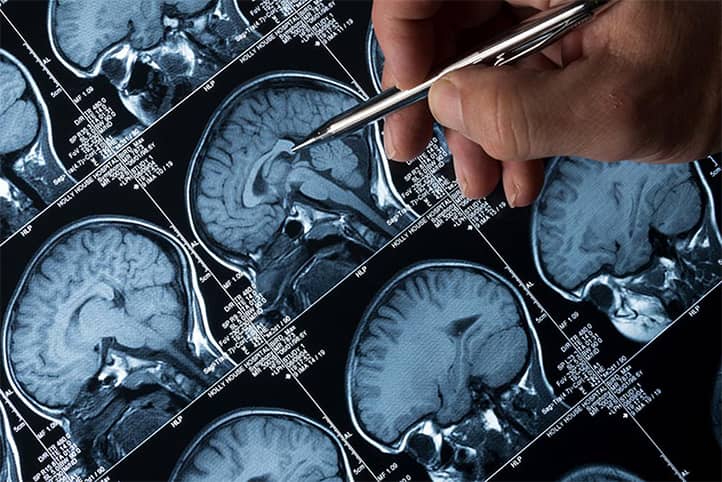
Conclusion
Magnetic resonance imaging has become a powerful tool not only for diagnosing physical diseases but also for understanding the complex interactions between psychological states and physical health. Taking psychological indicators into account when ordering an MRI opens new possibilities for early diagnosis and effective treatment of a wide range of disorders.
Integrating psychological support into the MRI diagnostic process is an important step towards a more holistic approach in medicine. Not only does it improve the patient experience, but it can also improve the accuracy of diagnosis and the effectiveness of further treatment. At the same time, it is important to remember the need for a balanced approach, avoiding overuse of MRI and maintaining critical thinking when interpreting the results.
The future of MRI in the context of psychological health looks promising. Advances in technology and integration with other fields of science open up new horizons for the study and treatment of psychosomatic disorders. However, with these opportunities come new ethical challenges that require careful consideration and resolution.
In the end, MRI remains just a tool, and its effectiveness depends on the wisdom and ethics of those who use it. The future of medicine lies in a harmonious combination of technological advances and a deep understanding of human psychology, where MRI will play a key, but not exclusive, role in ensuring holistic human health.
